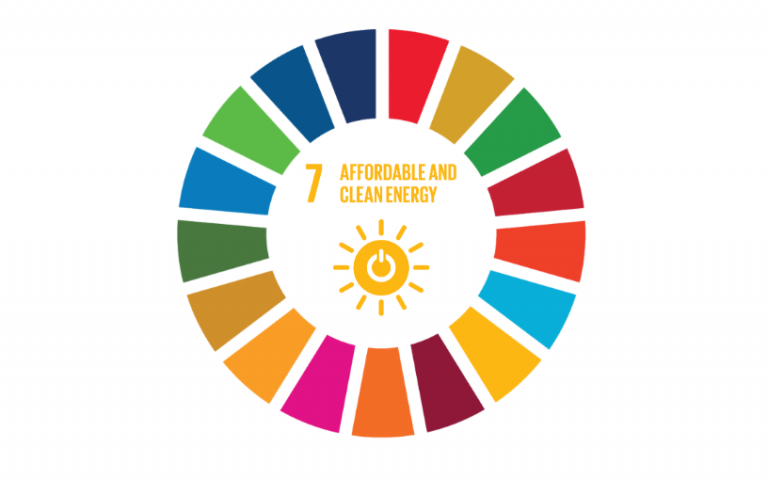Energy and SDGs: what are the synergies and trade-offs?
13 February 2018
On the 7th February 2018, the UCL Energy and Development Group hosted a high-level panel discussion to debate the role of energy in delivering sustainable development.

By Vivien Kizilcec, Doctoral Researcher, UCL Civil, Environmental and Geomatic Engineering (CEGE)
On Wednesday 7th February, the UCL Energy and Development Group held an event to celebrate the publication of their paper, Mapping synergies and trade-offs between energy and the Sustainable Development Goals, in Nature Energy.
Julia Tomei, Chair of the UCL Energy and Development Group and a researcher at the UCL Institute for Sustainable Resources (ISR), launched the event with a welcome and introduction to the Group. Francesco Fuso-Nerini, now an Associate Professor at KTH and previously a member of the Group, then gave a presentation of the paper’s findings. Ben Milligan, from UCL Laws and the ISR, chaired a wide-ranging panel discussion, which included panellists from academia, government and NGOs:
- Aaron Leopold, Practical Action
- Priti Parikh, CEGE
- Yacob Mulugetta, UCL Science, Technology, Engineering and Public Policy (STEaPP)
- Philip Mann, Department for International Development (DFID)
- Long Seng To, Low Carbon Energy for Development Network (LCEDN)
A wide array of topics was explored during the panel discussion, including energy and social justice, current methods of solving energy poverty, capacity building, and the policy and practical applications of the paper. One of the main themes to emerge from the evening was energy needs and aspirations, specifically how to incorporate what people ultimately utilised their energy for in policies and programmes. It was, for example, argued that for the end user access to energy is not about receiving a kilowatt of energy, but rather the services provided by energy. This means we must consider what end users want and need energy for when designing interventions to provide access to modern energy services
There was also a discussion of methods to tackle energy poverty, including the neglect of social and economic transformations by current market mechanisms which often therefore fail to address the needs of the most disadvantaged. However, even when designing systems to reach the poorest citizens, potential issues arise. For example, it was pointed out that the distribution of nearly-free products may cause markets for energy, which many governments are trying to develop, to be spoiled. The panel also discussed issues related to current approaches to finance, which have been largely focussed on innovation within the banking sector, rather than on the customer or demand side. The need to go beyond the current focus on building markets for energy was also highlighted.
The panel also discussed the importance of interdisciplinary research, and the need to work beyond policy silos. The need to involve experts from the outset was mentioned, thus enabling joint needs assessments to be carried out. Framing energy issues in ways that change-makers could relate to, or in ways which may help to meet objectives, was also discussed. There is also a need to provide compelling stories backed up by robust evidence – although the latter is often lacking.
The panel also discussed how this research could assist policy makers. The need to question our own assumptions when it came to energy access and place more emphasis on learning from developing countries was highlighted. It was acknowledged that efforts to address the Sustainable Development Goals, and meet its 169 Targets, are likely to be highly context specific, and that there will be no one size fits all solution. In this vein, the panellists argued there could be a greater emphasis on understanding the types of pressures and policy changes that are faced by politicians in developing countries. It is here the panellists thought academia could offer the greatest support to decision makers, assisting them to reveal the synergies and trade-offs within their own countries.
For the authors of the paper, the event represented the beginning of a conversation amongst all affected stakeholders about the role of energy in the SDGs. Building on the success of this event, the Group will be holding a follow-up workshop – watch this space for further details!
The UCL Energy & Development Group would like to thank the Vice-Deans (International) at Engineering and the Bartlett, Eli Keshavarz-Moore and Caren Levy, as well as Maija Powell from Bartlett School of Energy, Environment and Resources, and the Global Engagement Office at UCL for supporting this event.
 Close
Close

